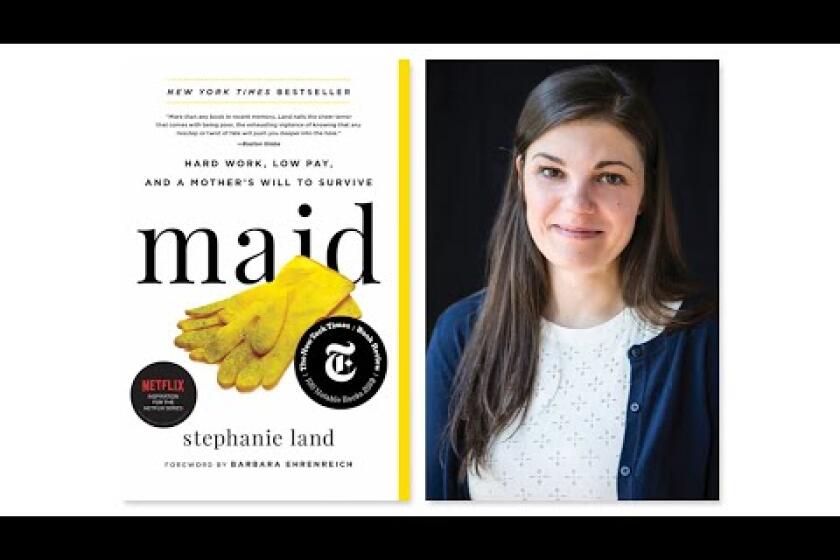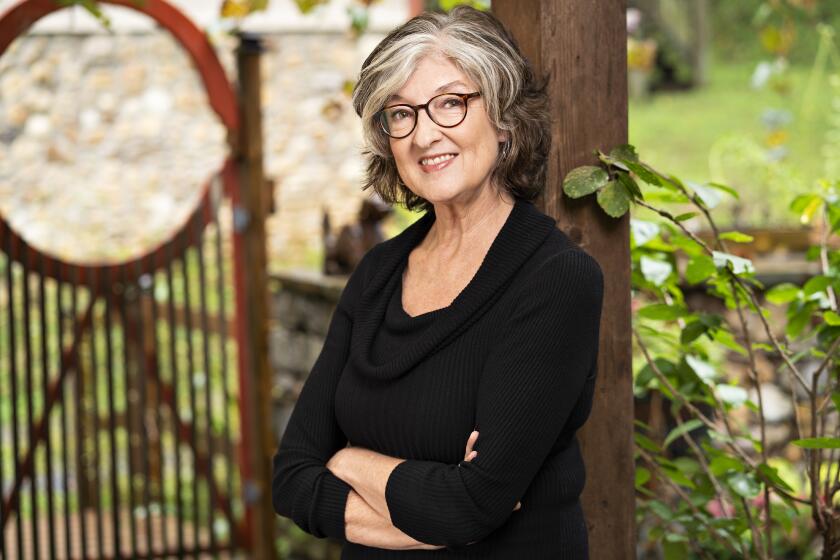Stephanie Land’s new memoir takes ‘Maid’ readers to school — not always in a good way
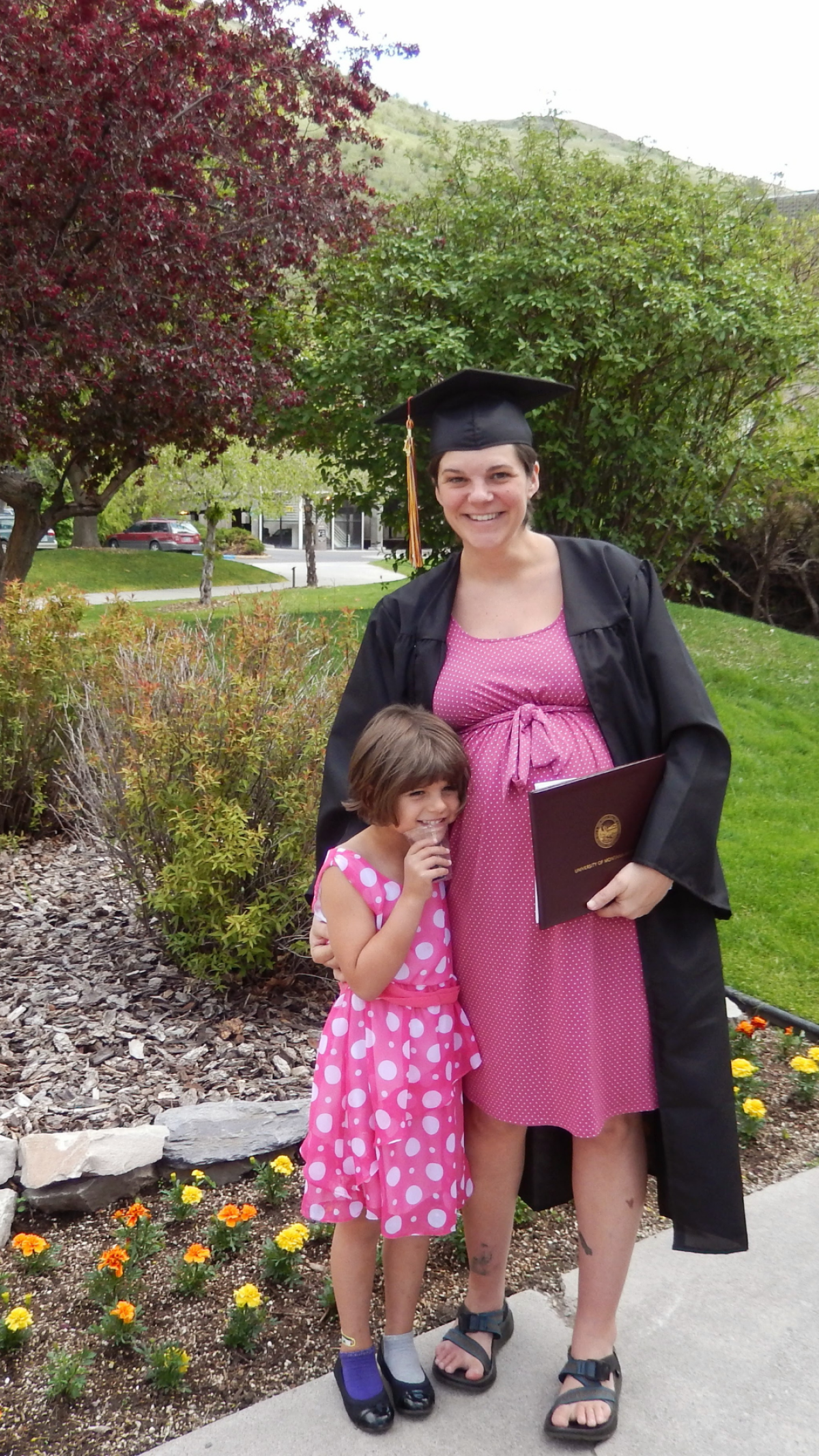
- Share via
Review
Class: A Memoir of Motherhood, Hunger, and Higher Education
By Stephanie Land
Atria: 288 pages, $28
If you buy books linked on our site, The Times may earn a commission from Bookshop.org, whose fees support independent bookstores.
Stephanie Land has many things to be mad about, most of them the result of the systemic oppression and erasure of poor people. Her blockbuster 2019 debut, “Maid,” detailed her life as a single mother supporting her child as a motel maid and as the “cleaning lady” who came into wealthy people’s houses to fix their messes. In her new memoir, “Class,” Land’s anger powers the compelling but incomplete story of what happened next.
“Maid” chronicled Land’s escape from an abusive relationship with her child’s father and the years of economic precarity that followed, including some time in a homeless shelter. One of its themes was just how much work it takes to be poor in this country, constantly fighting to prove yourself worthy of public aid. In the specificity of her situation — and the trust she builds with the reader — Land exposes the gap between the public perception of poverty and the very different reality in today’s America.
She returns to some of those themes in “Class,” which is about her decision to move to Montana in pursuit of a college degree in creative writing. Her anxiety over higher education feels deeply human, but it’s also a reminder that Land is a storyteller, not a neutral observer. As a writer, she makes choices about what she’s willing to reveal.
Stephanie Land, the author of ‘Maid,’ joins the L.A. Times Book Club on Jan. 25.
Land begins by questioning a label applied to her both before and after “Maid.” In America, we label folks “resilient” for managing to survive a morass of bureaucratic red tape, class prejudice and panic-inducing financial insecurity. It’s become our symbolic recompense to poor people: Prove your resilience and let praise and pennies substitute for economic reform.
“Resilience is a flag we poor people could wave to gain that trust,” Land writes. “If we proved ourselves time and time again — if we pulled up those f— bootstraps so hard they broke and our response was to shrug it off before we found some way to fix them so that we could immediately start pulling again — people nodded in approval.”
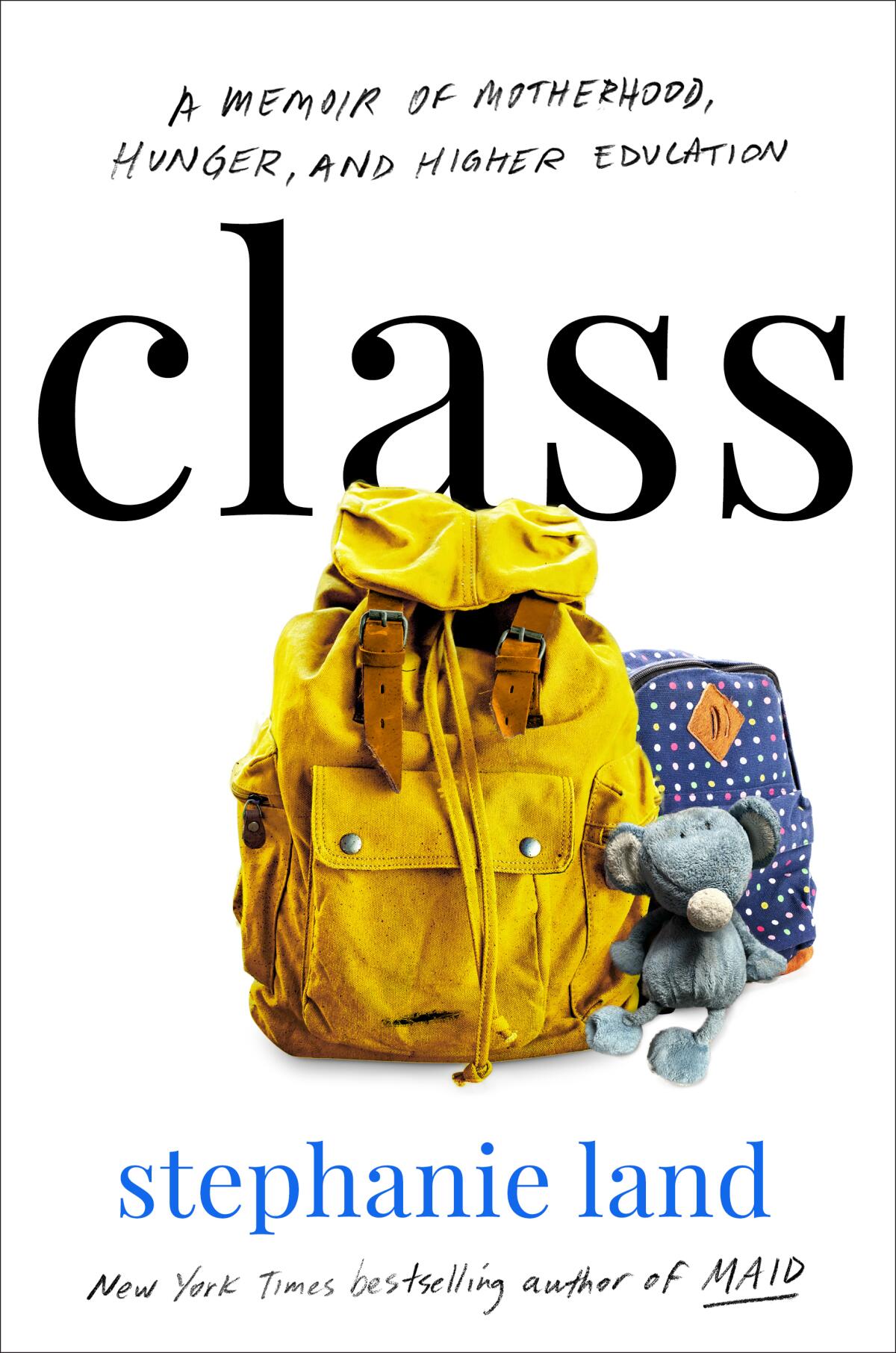
Land is dead-on in her analysis of the various ways our society makes poverty all but inescapable. “[W]hat society encouraged and what it actually supported were two different things depending on what economic class you found yourself in,” she writes, adding, “If I couldn’t eat, if I was hungry, then I couldn’t afford to aspire to anything better and I would have to keep working s— jobs that would qualify me for a small amount of money to buy food.”
Ultimately, these social critiques aren’t the reason we talk about Land’s memoirs. It’s the personal stories — the decisions she made faced with barriers — that compel readers. When “Class” turned personal however, I felt distanced, sometimes even skeptical; Land the writer was keeping the full implications of her choices (and therefore the reader) at bay.
I’m deeply sympathetic to Land’s trajectory, as it mirrors parts of my own. After leaving an unhappy marriage, I rediscovered that most of us really are two paychecks away from homelessness. Despite two graduate degrees, I couldn’t find a job; I survived because a few friends allowed me to couch-surf. I went to work as a waitress, but my kids ate in soup kitchens with me. Some days I fed the children but not myself. In other words, I have no truck with the “suck it up” school of social criticism.
5 things to know about Stephanie Land and “Maid: Hard Work, Low Pay, and a Mother’s Will to Survive.”
Land feels compelled to defend her decision to pursue a degree in creative writing — and she does so with convincing passion. At a time when humanities programs are maligned as useless and slashed from budgets, she wrestles with family expectations: “[M]y love for writing terrified me … if I failed, I’d prove right all the friends and family who’d encouraged me to get a two-year degree from a community college so I could step to the front of the line for an administrative assistant job.”
When it comes to other parts of her life, however, defensiveness cloaks that vulnerability in hardened battle gear. She knows readers might question her romantic choices. She recounts sexual encounters in detail but fails to mention birth control. For a 34-year-old single mom, unprotected sex feels like a rare lapse in her vigilance. And indeed, she becomes pregnant.
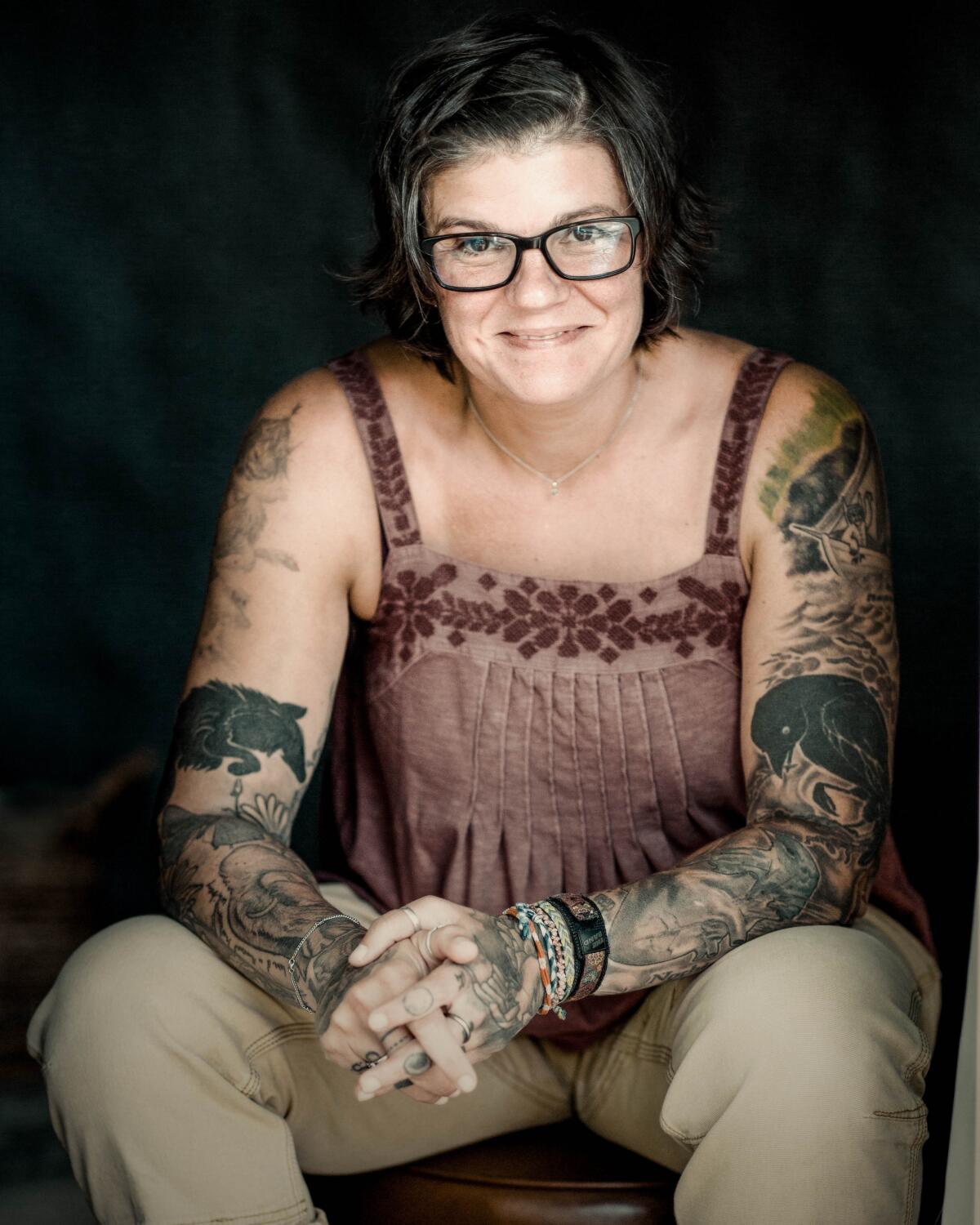
Grabbing a moment of pleasure in the midst of chaos — putting a pause on the anxious calculations of mere survival — is not a bad thing. But Land’s purported obliviousness to her own body feels like an easy way to avoid an honest reckoning with her own conflicted relationship to parenthood.
After an abortion in the spring, she loses track of her cycle and gets pregnant again in the late summer — and decides to keep the child. I’m not interested in judging her reproductive choices, but in a memoir built on trust, I’d love to have known more about them.
Indeed, Land’s circle of trust seems vanishingly small. Her friendships were just “surface,” she reveals, because she didn’t have the “bandwidth” to deal with others’ needs. In telling her friends she is pregnant, she “managed my expectations for their responses by setting a low bar.” Those responses fall into two buckets: those who question her decision immediately and those “registering surprise on their faces while the wheels turned in their heads to come up with something to say that wouldn’t be too offensive.”
The “Poisonwood Bible” author on her career and her new novel, “Demon Copperhead,” which reboots “David Copperfield” in opioid-ravaged Appalachia.
Thus Land manages her status as the University of Montana program’s “working-class writer” by making her pregnancy into a sort of friendship test. A friend driving her home after Land’s car breaks down expresses concern about managing a baby during grad school; Land dumps her for “concern trolling,” launching into a denunciation of class privilege and a recounting of her abandonment issues.
In many ways, “Class” feels much more candid than “Maid,” but in revealing the intimate details of her life, Land becomes pugnacious, forcing us to explore our own prejudices. This is a challenge to readers, but also a frustration.
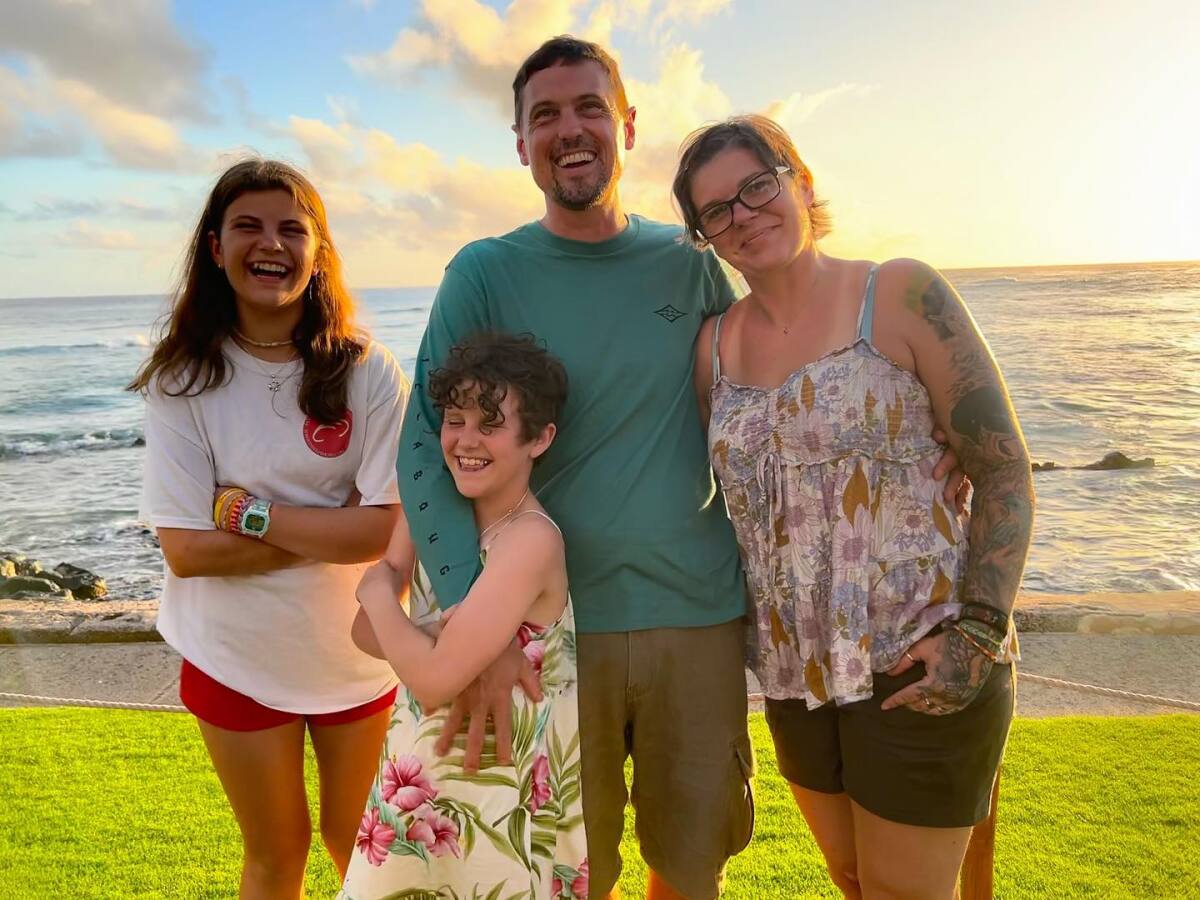
Reading “Class” made me think again about the purpose of memoir. A memoir is not an autobiography; it has a discrete time frame. And it creates a reasonable expectation that in looking back at past experiences, the author will come to something like a reckoning.
Continually weighing all of her decisions against the constant pressure of poverty, Land performs a sleight-of-hand by which anyone questioning her is allying themselves with toxic individualism. Rather than using pushback as an opportunity for intellectual or emotional growth, she shuts down any criticism. While I appreciate that unapologetic, even badass attitude, I also hoped for more moments of reassessment.
“Class” excels at pulling the reader into the story in visceral prose; where it falters is in processing that experience from the point of view of someone older, wiser and — let’s face it — a bestselling author and a producer of her own Netflix adaptation. Older Land has little room for any critique of her younger self. Social lessons abound; personal lessons are undisclosed.
8 books you should read instead of “Hillbilly Elegy.”
Perhaps this is a deliberate choice, designed to spotlight how poverty forecloses any thought beyond the immediate present. Long-range planning is for those who have the luxury of time to think. Land has succeeded beautifully in telling a story about poverty; she is a skilled, successful writer who has had time to think about her education.
A more complete tale would surely involve anger — which is perhaps a more honest word than “resilience” in explaining the drive to succeed in the face of horrendous barriers. In “Class,” however, that anger forecloses the greatest gift of the memoir genre, which is self-reflection.
Berry writes for a number of publications and tweets @BerryFLW.
More to Read
Sign up for our Book Club newsletter
Get the latest news, events and more from the Los Angeles Times Book Club, and help us get L.A. reading and talking.
You may occasionally receive promotional content from the Los Angeles Times.
